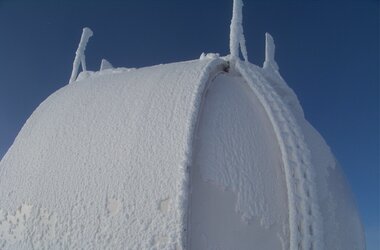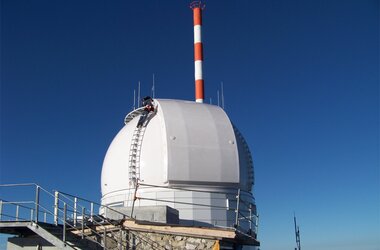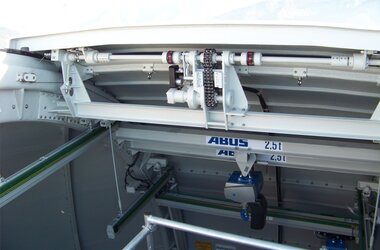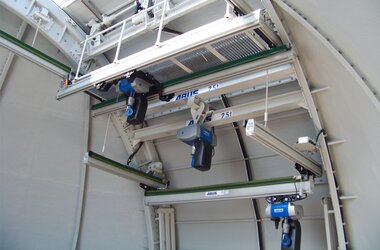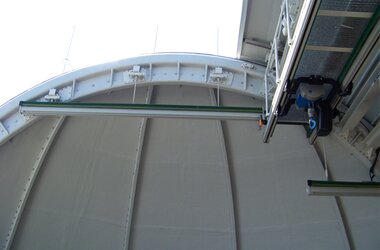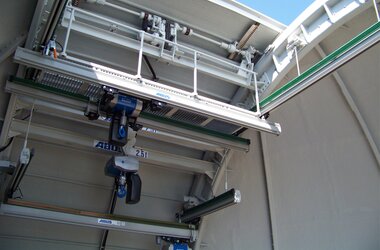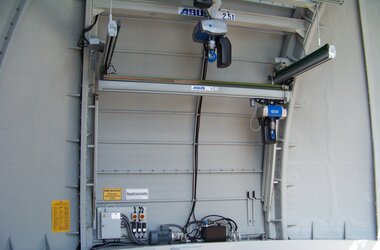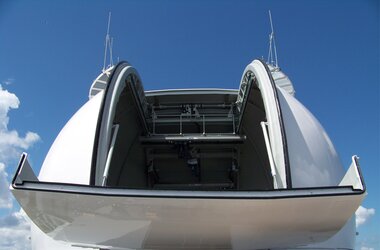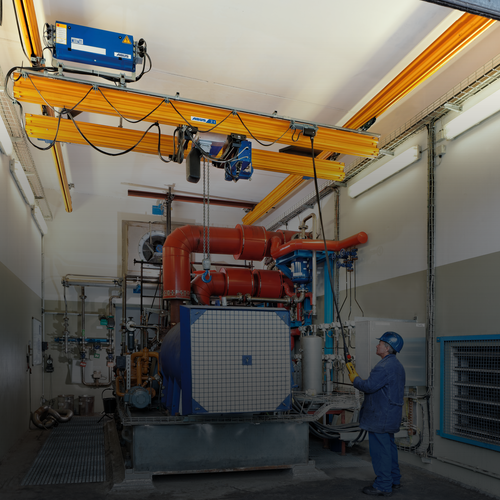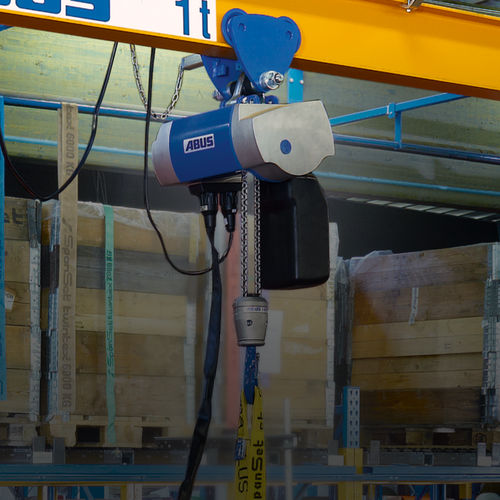Con ABUS a las estrellas – polipastos de cadena y sistemas HB en un observatario en la montaña alemana
Mankind has always been fascinated with the firmament and celestial bodies. It comes as no surprise astronomy is considered one of the oldest sciences. There is evidence of sky-watching from nearly all cultures and eras. Often sky-watchers had only simple tools we would consider almost primitive today.
Most modern instruments and telescopes—as built e.g. by Baader Planetarium—are available to science today. Baader Planetarium GmbH (www.baader-planetarium.de), a company in Mammendorf between Augsburg and Munich, was founded in 1966. Today their product range includes almost all astronomical instruments imaginable starting from small camera adapters through to telescope mirrors up to one meter in size and rotatable domed structures of up to 10 meters in diameter. Baader Planetarium specialises in protective buildings for astronomical observation in locations with extreme climates. Protective buildings have been erected on several mountain tops in the alps but also at research stations near the north and south poles which have to fully function at temperatures up to 84°C below zero. Manufacturing and installing a scientific observatory at such inhospitable locations is always a great challenge for Baader’s team. Not only are the installation conditions extremely difficult but the weather is too … When the observation dome—with a diameter of 8.5 meters—was installed on the Wendelstein mountain at an altitude of 1,850 meters in May 2010 with the help of a heavy-duty helicopter already three weeks had elapsed waiting for suitable weather. Before and after May the mountain top had been covered by deep snow. You may follow the installation on Youtube (see below).
In order to master the unusual transport task within an observatory ABUS Kransysteme supplied a ZHB type crane from the product range of HB systems with a load capacity of 1,000 kg and equipped with an ABUS electric chain hoist of the GM4 type. This was rounded up by a walkable platform installed by Baader. ABUS also supplied an EHB system with a load capacity of 1,000 kg and a GM4 chain hoist as well. A fixed locally used chain hoist type GM6 completed this order. Baader designed, and added to, the central control of the crane system. The cranes and hoists are used to change and to install instruments in the telescope depending on the required application. The fixed ABUS electric chain hoist with a load capacity of 2.5 tonnes is used to mount, to dismantle, and to reinstall the main optical element of the telescope: a mirror that weighs 2 tons and has a diameter of 2 meters. This mirror requires regular recoating which means it has to be dismantled and to be reinstalled every five years. As these elements of the telescope are very valuable and almost irreplaceable an absolutely reliable transport system is de rigueur.
The company Baader decided to rely on ABUS products as ABUS products have been successfully used by them in their own production and have been known to them as flexible and reliable transport systems for many years. Baader also holds that the cleverly designed space-saving ABUS products help to make the most of the space that tends to be rather limited inside a dome.

